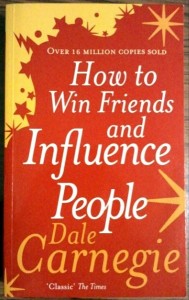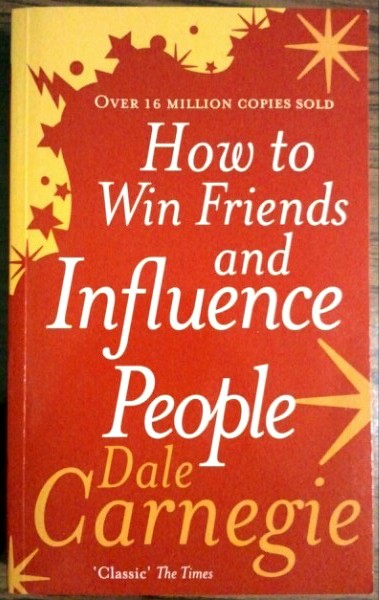 Contrary to the title, this book is not a study in “how to be popular” in a modern world. In fact, it is quite the opposite. The central theory that the book proposes is that simply by being an authentic and positive person you will receive what you are hoping for without even asking. Every one of the 30 lessons is indeed simple, however putting each into practice in a consistent way, on a daily basis, is anything but simple.
Contrary to the title, this book is not a study in “how to be popular” in a modern world. In fact, it is quite the opposite. The central theory that the book proposes is that simply by being an authentic and positive person you will receive what you are hoping for without even asking. Every one of the 30 lessons is indeed simple, however putting each into practice in a consistent way, on a daily basis, is anything but simple.
How to Win Friends and Influence People was, for me, a complete revelation. Perhaps the fact that it is written by a male engineer helps, as it clearly lists the ideas and provides simple, but nuanced, examples of it being used in practice. Some of the examples are pretty weak, however at least half of the ideas in the book benefit from a simple real life situation that helps you visualise how it might be implemented. It’s probably the most enlightening book I have ever read.
So what’s the big secret of the book? I would argue that it’s probably different for every person. For me, I was in a professional situation that many engineers can probably sympathise with – I was a strong technical leader, but was insecure in my communications and relationships where technical knowledge wasn’t the defining factor. These interactions were necessary, rather than enjoyable. I remember doing a personality profiling course, where it was revealed that some sales people (extroverts) actually needed to talk to people to recharge – the concept of this seemed so foreign to me!
The lesson that this book taught me, was that you get as much out of a person as you invest into them. Be genuinely interested in them, share your ideas freely, focus on the positive, don’t publicly criticise, use their name and be humble. It all sounds so simple, but ingraining it into your personality so it is a fluid and natural reaction takes a lot of repetition of both reading the book and implementing the ideas. I guess this is why neuroscience has emerged in such a massive way lately! Anyway I am now reading it for the second time in a row, and I am still learning new things and finding things I do wrong on a daily basis. I recommend this book to anyone, but particularly “green” engineers who are self-aware enough to know they could interact with the world better.

